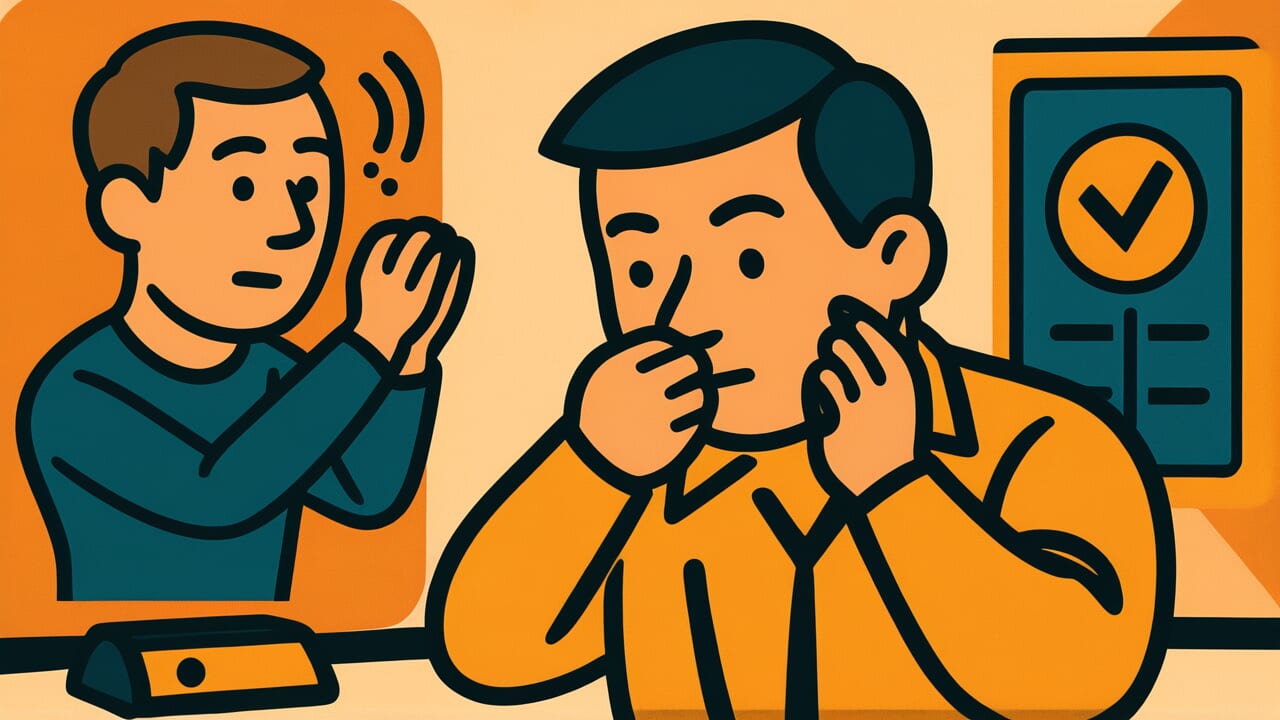How to Read “When you make a mistake, don’t hesitate to correct it”
Ayamachite wa aratamuru ni habakaru koto nakare
Meaning of “When you make a mistake, don’t hesitate to correct it”
This proverb means you should correct your mistakes immediately without hesitation. Everyone makes mistakes, but what matters most is how you respond afterward.
When you realize you’ve made an error, you might feel embarrassed or worried about what others think. Your pride might hold you back. However, correcting your mistake right away shows true courage and leads to personal growth.
People use this proverb to encourage someone who hesitates to admit their mistakes. It also helps when you need to find the resolve to fix your own errors.
In modern life, this applies to many situations. Work mistakes, relationship problems, and poor judgments all need quick correction. Hiding mistakes or delaying action only makes problems worse.
When you honestly admit your errors and fix them immediately, people trust you more. This attitude also helps you grow as a person.
Origin and Etymology
This proverb comes from the Analects of Confucius, specifically from the “Xue Er” chapter. The original Chinese text reads “過則勿憚改,” which was translated into Japanese and became the form we use today.
During the Spring and Autumn period when Confucius lived, scholars actively debated the ideal way for a noble person to live. Confucius recognized that all humans make mistakes. He taught that what truly matters is your attitude after making an error.
The word “habakaru” means to hesitate, hold back, or avoid something out of shame. When people make mistakes, they often fear admitting them. They worry about the changes that come with correction. This leads them to make excuses or ignore the problem entirely.
Confucius clearly understood this human weakness.
Confucian thought came to Japan long ago and greatly influenced the samurai code. By the Edo period, this saying was widely known. People valued it as a teaching for character development.
The lesson that true strength means admitting mistakes honestly and correcting them immediately has resonated with Japanese people across generations.
Usage Examples
- When you realize your project is heading in the wrong direction, remember “When you make a mistake, don’t hesitate to correct it” and adjust course immediately
- I’ll admit my judgment back then was wrong—after all, they say “When you make a mistake, don’t hesitate to correct it”
Universal Wisdom
Everyone has an instinct to avoid admitting their mistakes. This comes from wanting to protect your self-esteem. It’s a defensive instinct that keeps you from showing weakness.
People in positions of authority or respect often struggle even more with admitting errors.
This proverb has been passed down for hundreds of years because it reveals an essential truth. Human growth requires the courage to admit mistakes. No one is perfect.
Making mistakes actually proves you’re human. The real problem isn’t the mistake itself—it’s how you respond to it.
Hiding or justifying mistakes might feel easier in the moment. But you’re only postponing the problem. Eventually, this can lead to situations you can’t fix.
People who correct mistakes immediately might feel embarrassed at first. But over time, they earn trust and develop true strength.
Our ancestors deeply understood both human weakness and human strength. That’s why they used the strong phrase “don’t hesitate” to push us forward.
The courage to correct mistakes is the greatest force for personal growth. This universal wisdom is condensed into these few words.
When AI Hears This
Leaving mistakes uncorrected is like “letting a disordered system follow its natural course” in physics. According to the second law of thermodynamics, without energy input, all systems move toward disorder.
It’s like a room that gets messier if you don’t clean it.
What’s interesting is that the energy needed to fix a mistake grows exponentially over time. A small lie needs just one sentence to correct. But lies piled on top to hide it require enormous effort to fix.
This perfectly matches the physics principle that “the rate of entropy increase accelerates over time.”
The spread pattern of a mistake’s impact is also noteworthy. Broken trust spreads to everyone involved, like heat spreading to cold areas. Early on, you can fix things locally.
But with time, you need to “reconstruct the entire system.” An apology alone won’t work—you must rebuild the relationship from scratch.
Physics teaches us that restoring order always requires energy. Quick correction needs less energy. Hesitating means paying wasteful costs by going against the laws of the universe.
Lessons for Today
Modern society changes rapidly. Yesterday’s right answer can become today’s mistake. In such times, this proverb’s teaching becomes even more important.
When you make a wrong decision at work, say something hurtful in a relationship, or feel you’ve chosen the wrong path in life, pause and think. You can start correcting things right now, in this moment.
You can’t change the past, but you can change the future.
In our social media age, words you post stay on record. This might make admitting mistakes feel harder. But that’s exactly why honestly acknowledging and correcting errors touches people’s hearts.
Being sincere earns deeper trust than pretending to be perfect.
The key isn’t to avoid mistakes by doing nothing. When you take on challenges, failures will come. But learning from those failures and adjusting course quickly gives you the flexibility that drives your growth.
It’s not too late to start today. If you have something to correct, why not take that first step without hesitation?



Comments